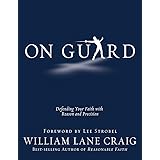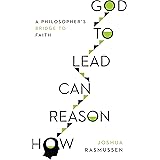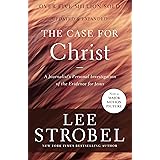
Enjoy fast, free delivery, exclusive deals, and award-winning movies & TV shows with Prime
Try Prime
and start saving today with fast, free delivery
Amazon Prime includes:
Fast, FREE Delivery is available to Prime members. To join, select "Try Amazon Prime and start saving today with Fast, FREE Delivery" below the Add to Cart button.
Amazon Prime members enjoy:- Cardmembers earn 5% Back at Amazon.com with a Prime Credit Card.
- Unlimited Free Two-Day Delivery
- Streaming of thousands of movies and TV shows with limited ads on Prime Video.
- A Kindle book to borrow for free each month - with no due dates
- Listen to over 2 million songs and hundreds of playlists
- Unlimited photo storage with anywhere access
Important: Your credit card will NOT be charged when you start your free trial or if you cancel during the trial period. If you're happy with Amazon Prime, do nothing. At the end of the free trial, your membership will automatically upgrade to a monthly membership.
Buy new:
$16.95$16.95
Ships from: Amazon.com Sold by: Amazon.com
Save with Used - Very Good
$10.99$10.99
Ships from: Amazon Sold by: Wilson Mercantile

Download the free Kindle app and start reading Kindle books instantly on your smartphone, tablet, or computer - no Kindle device required.
Read instantly on your browser with Kindle for Web.
Using your mobile phone camera - scan the code below and download the Kindle app.

OK
Is There a God? Revised Edition
Purchase options and add-ons
- ISBN-10019958043X
- ISBN-13978-0199580439
- EditionRevised
- PublisherOxford University Press
- Publication dateFebruary 1, 2010
- LanguageEnglish
- Dimensions0.5 x 5.8 x 8.9 inches
- Print length144 pages
Frequently bought together

Similar items that may ship from close to you
Editorial Reviews
Review
About the Author
Richard Swinburne was Professor of Philosophy at the University of Keele, Nolloth Professor of the Philosophy of the Christian Religion, University of Oxford, and Fellow of the British Academy.
Product details
- Publisher : Oxford University Press; Revised edition (February 1, 2010)
- Language : English
- Paperback : 144 pages
- ISBN-10 : 019958043X
- ISBN-13 : 978-0199580439
- Item Weight : 2.31 pounds
- Dimensions : 0.5 x 5.8 x 8.9 inches
- Best Sellers Rank: #665,678 in Books (See Top 100 in Books)
- #947 in Religion & Philosophy (Books)
- #1,062 in Philosophy Metaphysics
- #1,411 in Religious Philosophy (Books)
- Customer Reviews:
About the author

Richard Swinburne is a British philosopher. He is a Fellow of the British Academy, and was Professor of the Philosophy of Religion at Oxford University from 1985 until 2002.His latest book Mind. Brain and Free Will argues that humans consist of two parts, body and soul, and that humans have free will. He is best known for his trilogy on the philosophy of theism (The Coherence of Theism, The Existence of God, and Faith and Reason). The Existence of God (2nd edition, 2004)claims that arguments from the existence of laws of nature, those laws as being such as to lead to the evolution of human bodies, and humans being conscious, make it probable that there is a God. He has written four books on the meaning and justification of central Christian doctrines (including Providence and the Problem of Evil); and he has applied his views about what is made probable by what evidence to the evidence about the Resurrection of Jesus in The Resurrection of God Incarnate. Is there a God? and Was Jesus God? are short books summarizing the arguments of the longer books. He has written at various lengths on many of the other major issues of philosophy (including epistemology, the study of what makes a belief rational or justified, in his book Epistemic Justification). He lives in Oxford, and lectures frequently in many different countries.
Customer reviews
Customer Reviews, including Product Star Ratings help customers to learn more about the product and decide whether it is the right product for them.
To calculate the overall star rating and percentage breakdown by star, we don’t use a simple average. Instead, our system considers things like how recent a review is and if the reviewer bought the item on Amazon. It also analyzed reviews to verify trustworthiness.
Learn more how customers reviews work on AmazonReviews with images
-
Top reviews
Top reviews from the United States
There was a problem filtering reviews right now. Please try again later.
Reviewed in the United States on May 7, 2024


ITG starts off with a chapter aptly titled "God." In this chapter (modeled after his longer work, The Coherence of Theism), Swinburne outlines the properties and concept of God. It should be noted that Swinburne's view of God differs from classical theism in two major ways. First, Swinburne's conception of God does not involve knowledge of the future. His reasoning is that it is logically impossible to know that which does not yet exist (the future), so God is omniscient, but does not know the future. Going into great detail for an argument against that notion would take me too far away from this review, but suffice to say that I find the argument wrong for at least two reasons: 1) There are many coherent ways to envision the future as possible knowledge; 2) A timeless view of God would definitely entail foreknowledge, because all time would be equally present to such a deity.
Second, Swinburne's view of God differs in that he believes God's existence is contingent, not necessary (he does believe that God is necessary in the sense that his existence does not cease and cannot-the necessity/contingence is the difference between modern and Aristotelian contingency-thanks to Timothy McGrew and Chris Reese for pointing this out). Again, I disagree, but I find Swinburne's view coherent.
Swinburne then turns in chapter two to the nature of explanation and argues that we often take personal explanations as valid even within scientific inquiry. Further, he puts much weight upon the simplicity of a theory, which leads into his third chapter, which argues for the simplicity of theism as an explanation for much of our known data. These chapters sum up his work in The Existence of God.
Swinburne then turns to other arguments for the existence of God, such as the cosmological argument and the teleological argument. In chapter 6, he provides a theodicy-an explanation of evil on theism. While I've read some pretty harsh critiques of Swinburne's view on the problem of evil in the past, I found his argument here very compelling, personal, and interesting. His argument is largely a "greater good" type of argument-evils allow for things like heroism-but it is the most compelling version of such a theodicy I have read. I'm still not sure about whether I would incorporate this argument into my own apologetic, but I find Swinburne's account compelling. (More on this topic can be found in his Providence and the Problem of Evil.)
The last chapter of ITG deals with Swinburne's discussion of miracles and the argument from religious experience. Swinburne has been hugely influential in the field of arguing for the existence of God from religious experience, and this chapter sums up his argument. He argues that "we ought to believe that things are as they seem to be (in the epistemic sense) unless and until we have evidence that we are mistaken" (115). He then goes on to apply this to theistic experiences and concludes that "the overwhelming testimony of so many millions of people to occasional experiences of God must... be taken as tipping the balance of evidence decisively in favor of the existence of God" (120). (Swinburne's arguments here are developed in his book, The Existence of God.)
I find two downsides to ITG. First, the concise nature of the work means that those interested in his arguments will need to go beyond the book to fully explore the issues. However, this is barely a downside because that is exactly what the book is meant to be: an introduction.
The second is that Swinburne doesn't offer a very comprehensive "Guide to Further Reading" in his chapter of the same title. For example, about the question for the existence of God, Swinburne only offers two books arguing against God's existence for further reading. Furthermore, the two books he suggests are heavy philosophical texts not at all comparable to ITG. I would have liked to see Swinburne offer some suggestions for equally philosophical explorations on the positive side of the theistic question. (I recommend the "Blackwell Companion to Natural Theology" edited by William Lane Craig and J.P. Moreland and "God and Necessity" by Stephen Parrish as two "heavier" books on the side of theism.)
Richard Swinburne's "Is There a God?" is a fantastic introduction to his huge body of work. His tone is constantly amiable. Reading the work, one may feel as though they are in a conversation with Swinburne himself, which means it feels like one is in the presence of one of the most important Christian theologian/philosophers of our era. I cannot recommend it highly enough either for an introduction or a review of Swinburne's corpus.
I appreciate that Swinburne recognized the absurdity of maintaining that God is frozen in some static “Timeless” state where everything is an every present NOW. Swinburne acknowledges that God cannot do what is logically impossible and the future which doesn't exist isn't there to know, people who insist that God must know what isn't there to know, are like those who insist that God must be able to make a rock heavy then he can lift and make himself both exist and not exist at the same time. God knowing all there is to know, means all future events that are certainties in His mind, are the things He predetermines to do and all other future events which he doesn't predetermine, He knows them for what they are—possibilities.
On the issue of morality Swinburne wrote “Moral truths are clearly moral truths, whether or not there is a God: It is surely wrong to torture children for fun whether or not there is a God”
I must disagree with him on this. If there is no God and man is merely an evolved animal, then man could have evolved to think it was good in some cases to torture children for fun and there wouldn't be any reason that it was wrong if culture accepted it. We see things happening in the animal kingdom that causes us to gasp with horror, but we wouldn't say these animals that rape, eat their young, kill for entertainment are evil, rather they just behaving how blind and pitiless evolution determined them to behave, so are humans morally superior because they evolved differently? If so by whose standard? So sure, what if human “animals” evolved a sense of “I'll scratch your back if you scratch mine” and this really is the basis for reciprocal altruism, they could have just as well evolved a different sense that would have also had survival benefits. Even if we evolved certain “moral” prejudices, and are therefore, deluded into sticking the oughts and ought nots on our own subjective prejudices, doesn't mean there is any such thing as moral truths. With no God, there simply cannot be any absolute moral Oughts or Ought Nots, the moral sense is an accident of evolution and it is forever in flux and shaped by the ever changing culture. I think it is more reasonable to say the basis of morality is the the very goodness of God, the basis of duty is the commands that flow from the One who is Love.
Swinburne made some interesting points. He mentioned “God cannot create the best of all possible worlds, for there can be no such world—any would can be improved by adding more persons to it, and no doubt in plenty of other ways as well. So what does God's perfect goodness amount to? Not that he does all possible good acts—that is no logically possible. Presumably that he fulfills his obligations, does no bad acts, and preforms very many good acts.”
I liked Swinburne's chapter on the two different kinds of Explanation, which was the reason why I bought and read the book. He writes “When dynamite causes a particular explosion, it does do because it has, among its properties, the power to do so and the liability to exercise that power under certain conditions—when it is ignites at a certain temperature and pressure. It has to cause the explosion under those conditions; it has no option, and there is nothing purposive about it doing so. But the dynamite was ignited because, say, a terrorist causes the ignition, because he had the power to do so, the belief that doing so would cause an explosion. He chose to cause the ignition; he could have done otherwise. Here we have two kinds of explanation. The first, in terms of powers and liabilities, is inanimate explanation. The second, in terms of powers, beliefs, and purposes, is intentions, or—as I shall call it in the future—personal explanation.”
Atheist believing there is no God, must believe that humans late in the history of the universe, due to unexplained natural laws, acting on inanimate matter that popped out of nothingness, though unguided and meaningless, accidentally evolved consciousness, mind, reason and the powers of acting and shaping the natural world (that is if they don't claim freewill and consciousness is an illusion as some do). This means they are forced to think that outside of humanity, there is only inanimate explanation. But if we suppose there is a God, we are then free to acknowledge both inanimate and personal explanations and can make much more sense of the universe, why there is something rather than nothing and the fine tuning of the cosmos, the mathematical and logical aspects of it, the information, complexity, beauty and rationality, etc...
Swinburne is a theistic evolutionist and I am not, but I did like this point he made “Darwin showed that the universe is a machine for making animals and humans. But it is misleading to gloss that correct point in the way that Richard Dawkins does: 'our own existence once presented the greatest of all mysteries, but... it is a mystery no longer... Darwin and Wallace solved it' )The Blind Watchmaker, p.xiii). It is misleading because it ignores the interesting question of whether the existence and operation of that machine, the factors which Darwin (and Wallace) cited to explain 'our existence', themselves have a further explanation. I have argued that the principles of rational inquiry suggest that they do. Darwin gave a correct explanation of the existence of animals and humans; but not, I think, an ultimate one. The watch may have been made with the aid of some blind screwdrivers (or even a blind watchmaking machine), but they were guided by a watchmaker with some very clear sight”
On the problem on evil, Swinburne wrote “in order to have a choice between good and evil, agents need already a certain depravity, in the sense of a system of desires for that they correctly believe to be evil... Depravity is itself an evil which is necessary condition of greater good. It makes possible a choice made seriously and deliberately, because made in the face of genuine alternative. I stress that, according to the free-will defense, it is a natural possibility of moral evil which is the necessary condition of the great good, not the actual evil itself.”
I could see how one could form this conclusion from the story of Adam and Eve. God put a tree in the garden and said don't eat from it. He could have made the fruit smell like poop and look like rotting meat with maggots crawling in it. But instead, we see Eve saw the fruit was desirable and she also wanted the wisdom it promised. So not only was there the possibility, but the evil option was compelling, there was an inner desire for it. But does this mean that Adam and Eve are to be considered to already be depraved?
For there to be truly a choice, must evil be as or more attractive than the good? If I offer my kids Brussels spouts or ice-cream, I am giving them a choice, but I know they'll likely go with the ice-cream. Why couldn't God have made the good like ice-cream and the bad like Brussels spouts? How does this truly remove choice?
Some of Swinburne's thoughts on Miracles and Religious Experiences was good. But this review is a bit lengthy, so I'll wrapped up.
The only thing is that the chapter on Evil is a litte not so convincing. And also Swinburne takes the view that God is eternal and not the view that God is timeless - but the timeless view seems more compatible with omniscience.














